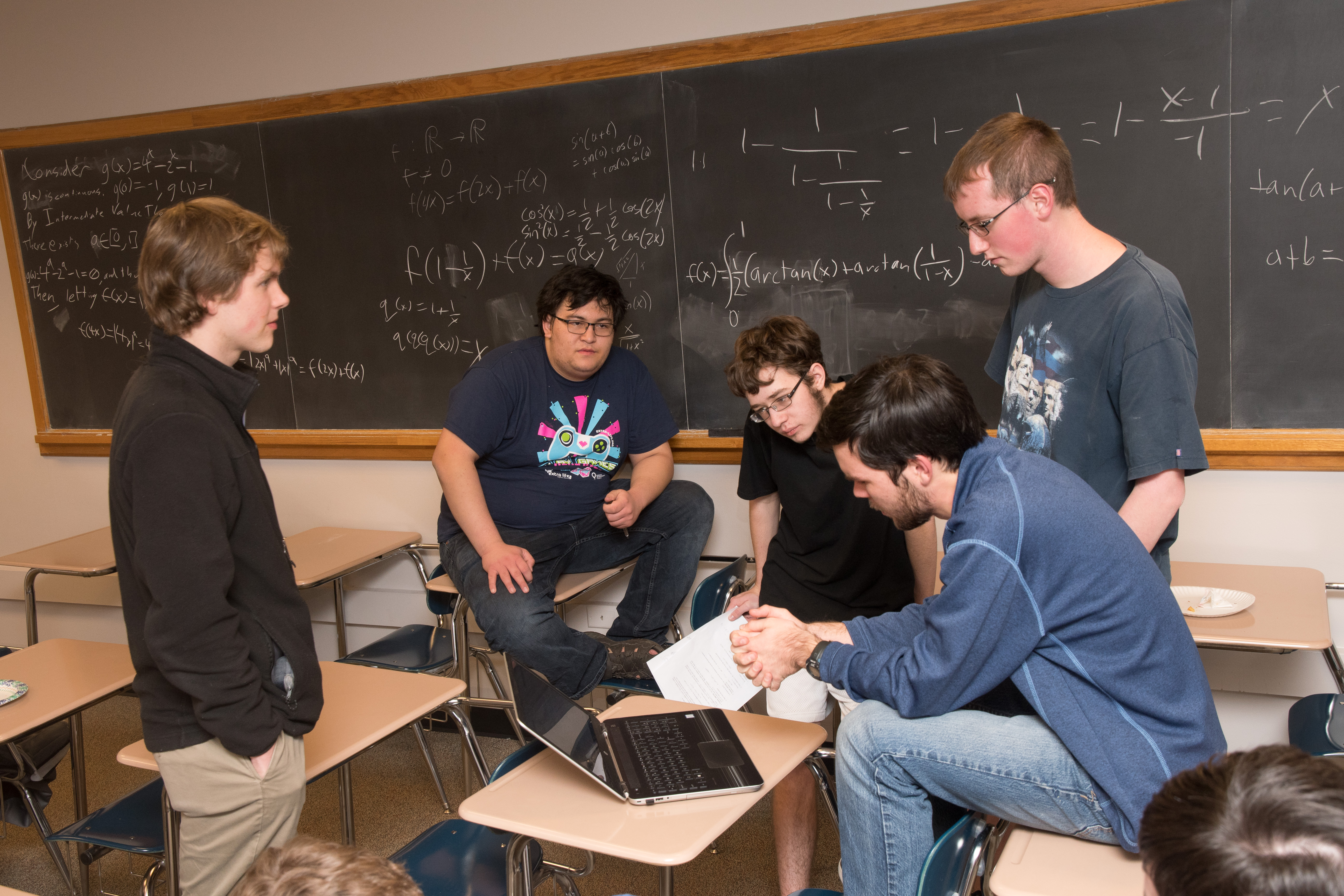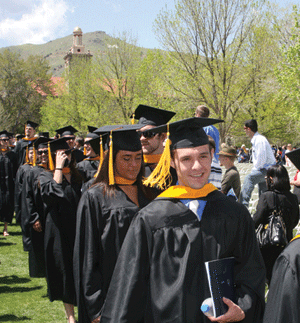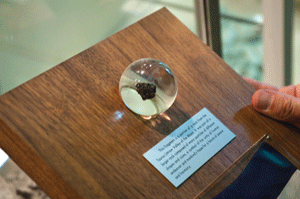Top Marks

Mines had its best team placement and individual placement in school history in the 2017 William Lowell Putnam Mathematical Competition, the preeminent undergraduate mathematics competition in the United States and Canada.
Sam Reinehr, a junior majoring in mathematics and computer science, placed 51st out of 4,638 total students who participated in the exam. Overall, the Mines team, comprising three pre-selected individuals, ranked 40th out of 575 participating institutions.
Both Reinehr and Mines freshman Matthew Iverson also had their names published in the official Putnam announcement, an honor reserved for top 500 scorers.
“The median on this year’s exam was 0, meaning that more than 50 percent of all participants earned no points whatsoever on the exam’s 12 questions, worth 10 points each,” said Steve Pankavich, associate professor and director of graduate studies for the Applied Mathematics and Statistics Department. “The high score this year was 89—Sam Reinehr earned a score of 58, which ranked him 51st among all competitors, including dozens of students at the nation’s most prestigious and high-scoring universities, such as MIT, Harvard, Princeton, Berkeley and Carnegie Mellon.”
Reinehr, a member of the Mines team that qualified for the world finals of the ACM International Collegiate Programming Competition in April, also earned the highest Putnam score in Colorado.
“This was my third time taking the Putnam,” Reinehr said. “I was able to focus fully and didn’t run too hard into any snags this time around.”
Reinehr participated in Mines’ Putnam club to help prepare for the exam. He also credited his high score to doing “a lot of competitive math” in high school, attending summer camps and taking online classes on Art of Problem Solving (AoPS) about competitive proof-writing.
“I have not really thought much about what this means to me—it’s nice,” Reinehr said.
Iverson, a freshman planning to major in computational and applied mathematics, ranked 302nd with a score of 33 in his first time taking the Putnam exam.
“I’m really excited that I was able to score as highly as I did in my first year,” Iverson said. “I still hope to make significant improvements in future years with more practice and preparation time.”
Taking Foundations of Advanced Mathematics (MATH 300) with Debra Carney, teaching professor and assistant head of the Applied Mathematics and Statistics Department, this fall really helped him on the exam, he said.
“The Putnam competition focused heavily on proving results, rather than just getting correct answers,” Iverson said. “The proof techniques and logic I learned from Dr. Carney were integral to the test.”





